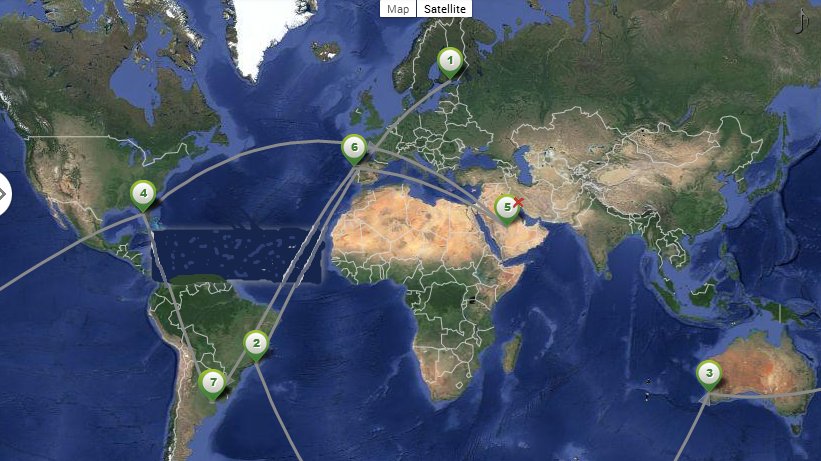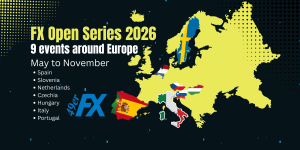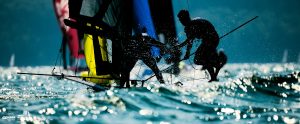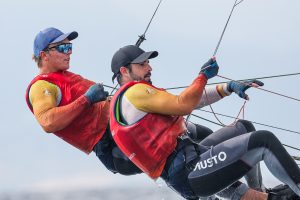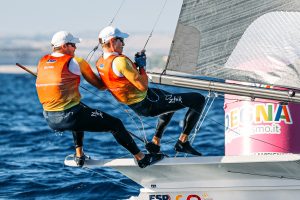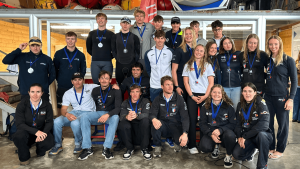 The 49er class is pleased to announce a Continental Championship series bringing fantastic racing and to all corners of the globe. In the run up to the 2016 Olympics these will be vital events to all sailors chasing their Olympic dreams.
The 49er class is pleased to announce a Continental Championship series bringing fantastic racing and to all corners of the globe. In the run up to the 2016 Olympics these will be vital events to all sailors chasing their Olympic dreams.
Here are the continental championship dates we can confirm, and as always check the event schedule for the up to date schedule. Fans out there can sign up to our notification list to be told about live broadcasts.
- 2014 South American Championship – Rio, Brazil, November 5-8, 2014 (Intergalactics are Nov. 11-14)
- 2015 Oceania Championship – Perth, Australia, Jan 6 – 11 (State champs are week before)
- 2015 North American Championship – Clearwater, USA – Feb 5-8
- 2015 African & Asian Championship – TBA – March 2015
- 2015 European Championship – Porto, Portgual, July 7-12
- 2015 Junior World Championship – TBA, Europe, August
- 2015 South American Championship – Buenos Aires, Argentina – November 5-8, 2015
- 2015 World Championship – Buenos Aires, Argentina – November 17-22, 2015
- 2016 World Championship – Clearwater, USA – Feb 9-14
The continental series will become a hugely important part of Olympic class sailing for a number of reasons. The European Championship has been viewed as a second World Championship for quite some time, with all the top sailors competing. That event will not change in significance. What is changing, however, is the structure of the World Cup circuit. ISAF’s new world cup circuit will have strict limits on participation, meaning that only the best sailors will be able to participate. For 49er and 49erFX there will be a 25 team limit to each World Cup. The hundreds of other teams will therefore need other quality regattas to test themselves, and that is where the continental series can play a huge role.
The new World Cup circuit, it is shaping up to be a well contested series for the best sailors in the world. Major changes include the series will culminating each year in a Grand Final and that world Cup events will be limited to a single fleet of boats.
In the Grand Final only 20 boats from each event will race off in a five day event to win the World Cup title. The finals are late in the year and do not conflict with any other typical sailing regattas, so should be looked at as a bonus event where the worlds best can race.
For the other World Cup events, changes are not all equal. Sail Melbourne and Miami will continue without too much change, as fleet sizes have always been smaller at these events. The European World Cup circuit will see the biggest changes. Hyeres, a long time World Cup location and Weymouth, the 2012 Olympic venue, won the selection. European world cup events have seen huge participation in recent years, and this will all change, with fleet sizes cut in half. This is very significant in the case of Heyres, as it’s had participation of every 1000 boats cut to less than 400. Weymouth has been smaller recently, so the change won’t be so impactful.
The risk to this strategy by ISAF is there is a huge gap in the roadmap for developing sailors to race and learn the skills they will need to become the best themselves. The 49er class is creating a relevant regatta series where teams can race against the best in reasonable proximity to their homes each year. Most of the events in the continental series are ‘paired events’ meaning that teams who make the journey will have two regattas to compete in. The continental events will also be worth 100 ranking points helping teams climb the ladder and get into the World Cup circuit. We also hope that ISAF agrees with our vision of making a viable second circuit strong, and awards the winners of each continental championship a place in the Grand Final. These details have yet to be decided.
There are many details to be iron out, from sponsorship, to whether it’s the best idea for the World Cup to go to go to every continent every year in these environmentally minded times. The piece that is known is the change of focus from being a participation driven circuit to being an elite circuit. By putting in place a well timed participation series, the 49er class aims to ensure developing and new teams have great events to compete in while they aim for the World Cup.
With these new announcements there is a clear calendar of races that will take the worlds best skiff sailors through to the Rio Olympics. Along the way they will visit all the worlds continents in as compact a travelling package as is realistic in this modern age. Highlights along the way will be a first time visit to Porto in Portugal, a fall/winter in South America in 2015, and a Winter/Spring in North America in 2016. While there is still much travelling that will be done by all of these sailors, the skiff circuit provides multiple regatta opportunities at each area or venue to maximise the rewards from investment in travel.
Further, with our Oceania and Asian championships we will provide outstanding regatta opportunities to areas that aren’t part of the main circuit through Rio.

